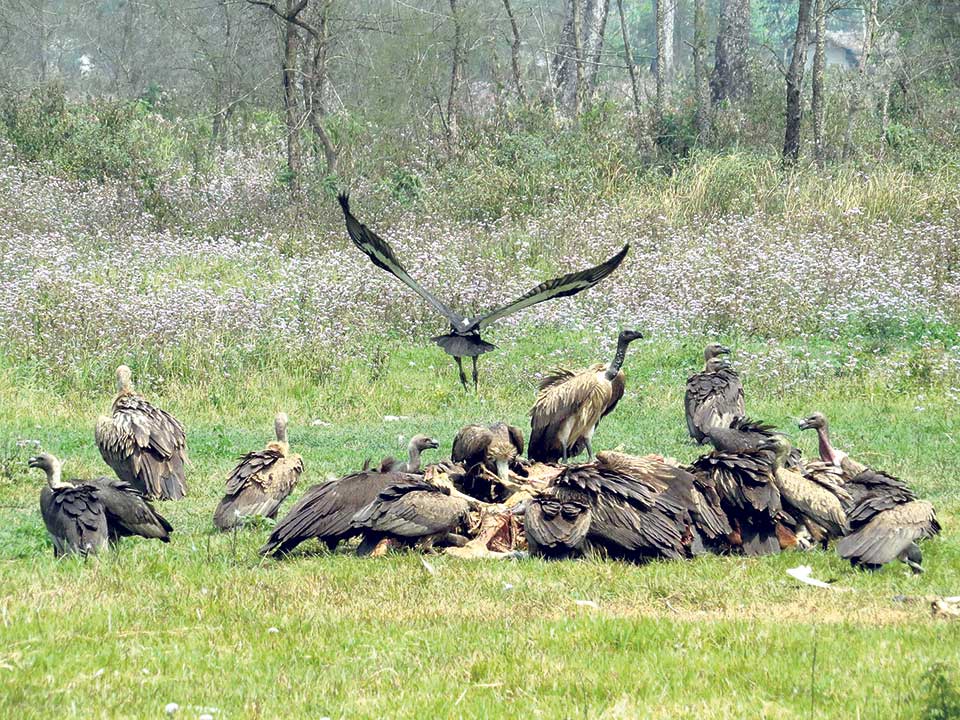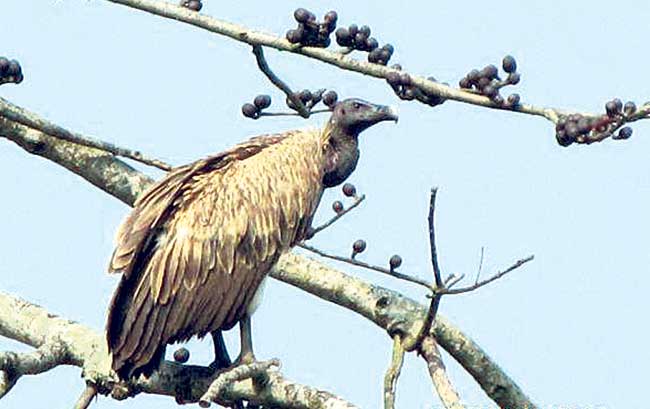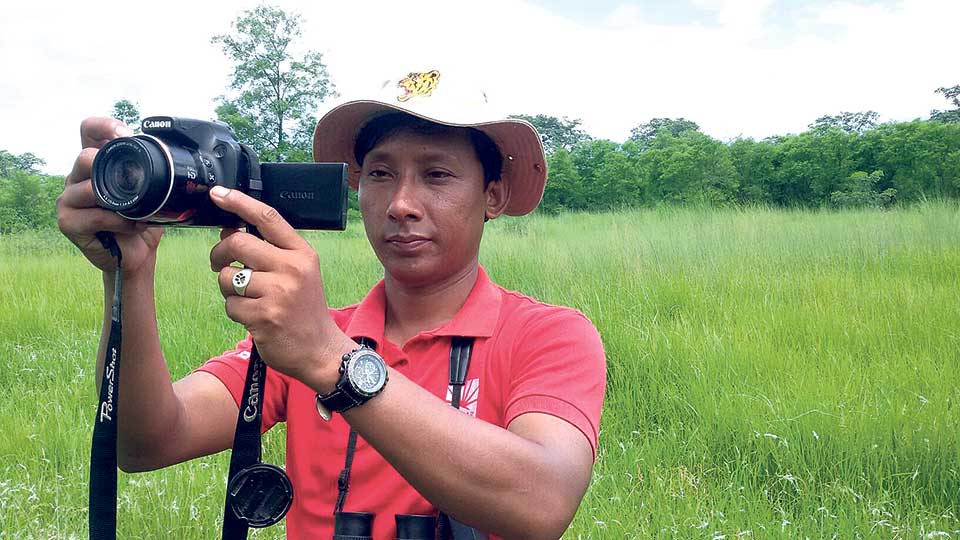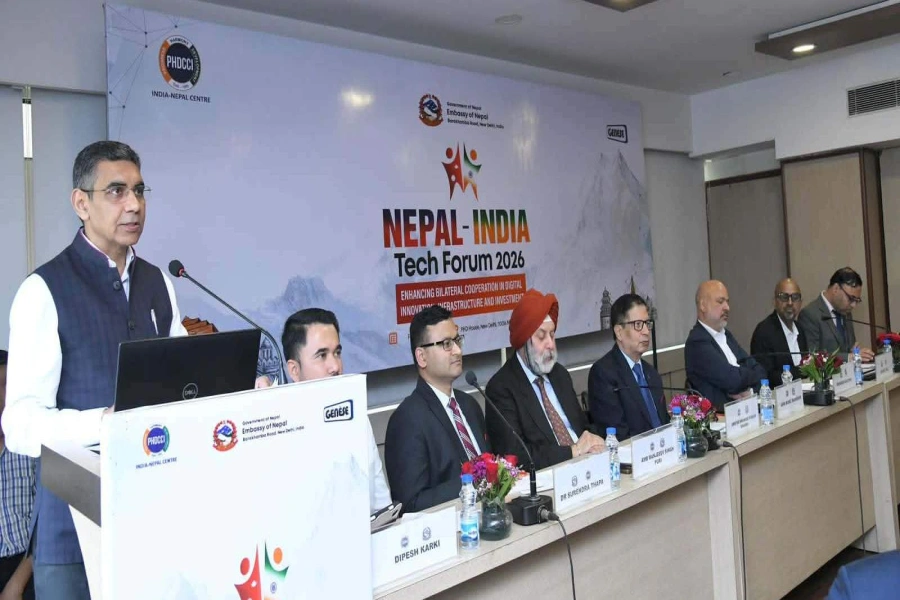Jatayu Vulture Restaurant located in Nawalparasi is unlike any other restaurant you have ever visited. Based in Namuna community forest, the space believes in coexistence with nature and conservation of natural resources. However, it is not a restaurant where you can enjoy delicious food and the beauty of nature. But this eco-centric restaurant was exclusively created to make a safe breeding space for vultures.
When Dhan Bahadur Chaudhari was young, vultures could be commonly spotted in his hometown. But in the mid 1990s, Nawalparasi observed a huge decline in the population of vultures. This sounded the alarm bells among locals.
It was soon found out that the disastrous drop of the vulture species was due to contamination of cattle carcasses with a veterinary drug named diclofenac. “Researches found out that most vulture species used to feed on contaminated carcasses which would eventually cause their death,” says Chaudhari. Therefore, with the support of organizations such as Bird Conservation of Nepal and Royal Society for Protection of Birds, Chaudhari initiated safe feeding sites for these endangered species in 2006.
 Jatayu Management Restaurant led by Chaudhari now brings in old and unproductive cattle from the nearby villages and keeps them at their cow rescue center. These animals are then looked after and fed till the time they die at the rescue center. After their natural death, the meat of these cattle are given to the vultures at the vulture restaurant. They also bring injured and sick birds to their center, treat them, and release them back into nature.
Jatayu Management Restaurant led by Chaudhari now brings in old and unproductive cattle from the nearby villages and keeps them at their cow rescue center. These animals are then looked after and fed till the time they die at the rescue center. After their natural death, the meat of these cattle are given to the vultures at the vulture restaurant. They also bring injured and sick birds to their center, treat them, and release them back into nature.
Nature will bring all the solace to your troubles. Read out the...

The management committee also organizes various awareness raising programs throughout the year to disseminate information among the natives. “We have youth encouragement trainings, guide training, bird watching programs and vulture monitoring programs every year,” says Alina Chaudhari, daughter of Dhan Bahadur Chaudhari who is an active volunteer at this vulture breeding project.
“I have seen my father work day and night to conserve these endangered birds. Over the years, he has been able to create awareness among the locals about the importance of conservation and the role of these birds in the natural ecosystem,” she adds.
According to Alina, it was difficult to make the locals understand the importance of preserving these birds. “Vultures were considered to be untouchable birds in our community. This further magnified the apathetic attitude of the locals to conserve birds here,” says Alina. But slowly that mindset seems to be changing. Now, especially the youth of Nawalparasi appear to be extremely enthusiastic about conserving nature.
The community has also opened a vulture information center for locals and tourists alike. “The primary aim of this information center was to attract tourists and spread information about the importance of healthy wildlife,” says Chaudhari. Currently, eight out of nine vulture species are found in Nepal. Himalayan Griffon, Euro-Asian Griffon, Red-headed vultures, Slender-billed vulture and Long-billed vulture can be spotted at the community breeding centre.
 After more than a decade long dedication and hard work, Chaudhari has been able to provide a safe haven for these wild birds. For his work, he was also nominated as one of the BirdLife’s 2017 Nature’s Heroes by Bird Conservation Nepal. His pioneering venture to create a safe feeding area for vultures has also inspired many conservationists across the continent. Each year BirdLife partner can nominate three heroes. This award is usually given to community groups or individual volunteers for any outstanding work done locally to conserve nature.
After more than a decade long dedication and hard work, Chaudhari has been able to provide a safe haven for these wild birds. For his work, he was also nominated as one of the BirdLife’s 2017 Nature’s Heroes by Bird Conservation Nepal. His pioneering venture to create a safe feeding area for vultures has also inspired many conservationists across the continent. Each year BirdLife partner can nominate three heroes. This award is usually given to community groups or individual volunteers for any outstanding work done locally to conserve nature.
“The problem of diclofenac drug does not only persist in Nepal but it is affecting vultures in other parts of Asia as well. I feel this is just the beginning and there is a lot of work left to be done,” adds Chaudhari.
Chaudhri’s model of community-based vulture breeding center has motivated many conservationists. Many communities in Nepal have established vulture breeding areas in places such as Rupandehi, Gaidahawa, Lalmatiya, Dang, Kaski and Sunsari. This model is also being replicated by various organizations in the sub-continent as well. As a lifelong member of BirdLife Partner Organization, Chaudhari is now working towards the conservation of grassland birds and mammals.
“I wish to create a co-existing community where humans and nature help each other flourish,” says Chaudhari. Putting his words into action, he has actually been able to help low income families and provide employment to the excluded Mushahar community of that area. For lower income groups, it gets difficult to sustain an ailing cow. Hence, this community-led organization buys these sick and old cows from the owners. This way the owners are able buy a new cow and vultures are provided with a constant and safe diet.
 “My father has been a great inspiration to me. In the future, I wish to become a conservationist and help our country develop eco-centric policies,” concludes Alina.
“My father has been a great inspiration to me. In the future, I wish to become a conservationist and help our country develop eco-centric policies,” concludes Alina.







































